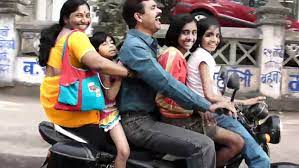The law of India refers to the legal system that governs the whole country of India. Inside the legal framework back to colonial era, India retains a hybrid legal system with such a blend of civil, common law, as well as customary, Islamic ethics, or religious law, although numerous legislation initially adopted by that of the British are still in existence in modified versions today. Indian legislation have followed the United Nations recommendations on human rights and environmental law but since constitution was drafted.
Personal law in India is rather complicated, with each faith having its very own set of rules. Marriage and divorce registration also isn’t required in most states. Hindus, comprising Sikhs, Jains, and Buddhists, Muslims, Christians, as well as people of other faiths, are governed by different laws than Muslims, Christians, and people of other faiths. The state of Goa is an exception to this norm, since it has a standard civil code that applies to everyone religions in terms of weddings, divorces, and adoptions.
The Supreme Court of India prohibited the Islamic practise of “Triple Talaq” in the first significant reformist decision inside a decade. Women’s rights advocates across India applauded the Supreme Court of India’s groundbreaking decision.
There were around 1,248 statutes in January 2017. However, because there are both Central and State laws, it’s impossible to know their precise numbers again about a particular day, thus the easiest approach to locate the Central Laws in India is to visit the official websites.
The Indian Penal Code, which was drafted by that of the British under the British Raj in 1860, is the cornerstone of Indian criminal law. The procedural features of criminal law are governed by the Code of Criminal Procedure of 1973.
The government eliminated jury trials in 1960, claiming that they were vulnerable to media and public influence. The ruling was predicated on Kawas Nanavati’s 8-1 conviction in the case K. M. Nanavati vs. State of Maharashtra.
Also Read: Why were comedy movies popular in the 1930s?

